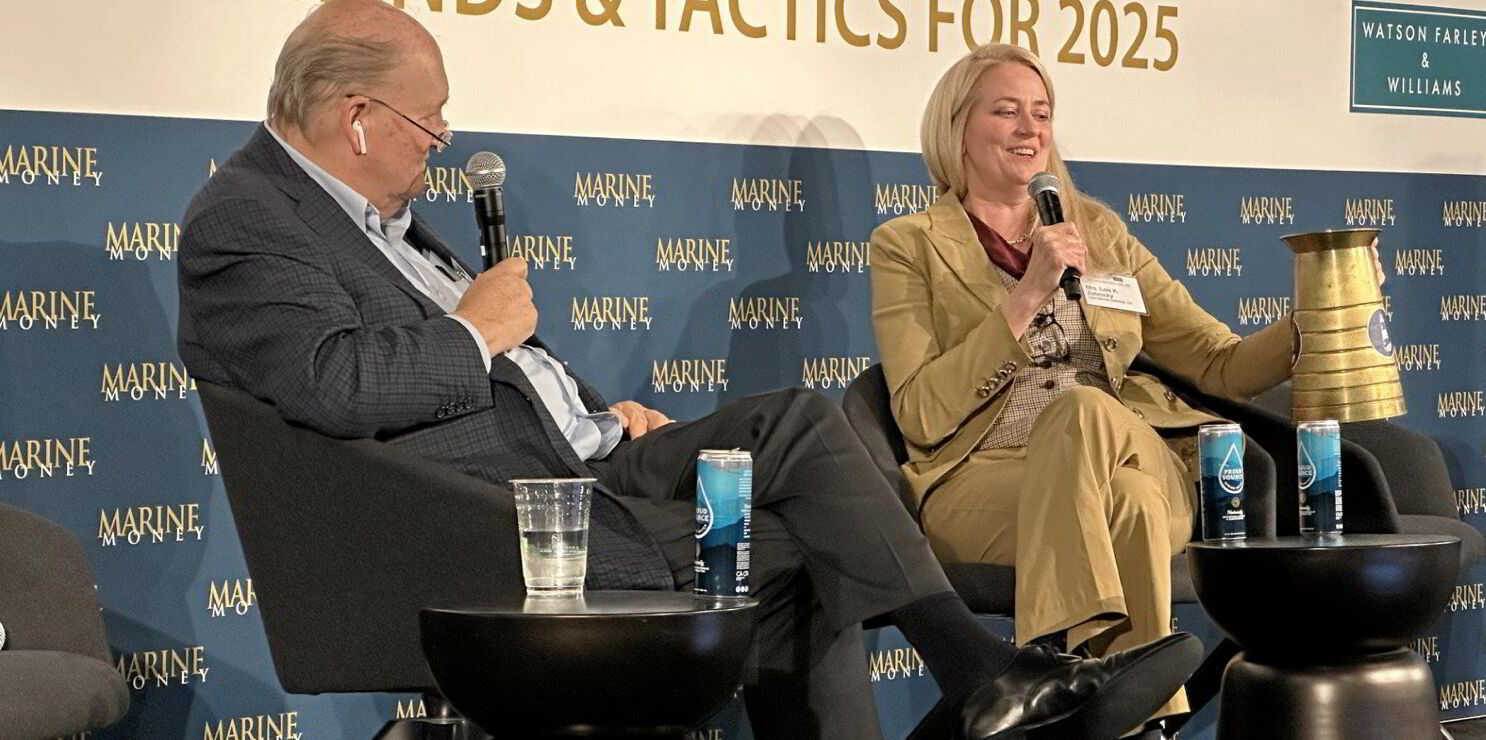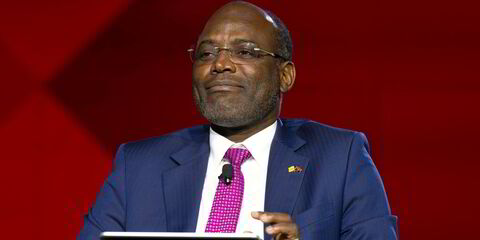One of shipping’s leading female executives used the conference spotlight on Thursday to announce that her company is set to initiate its first all-female cadet programme in 2025.
International Seaways chief executive Lois Zabrocky broke news of the plans as she was interviewed on stage by Scorpio Tankers President Robert Bugbee at Marine Money’s annual New York finance forum.
Zabrocky told TradeWinds in a sideline interview that the pilot initiative will supplement the Manhattan-based company’s existing cadet programme.
It will start with “a couple of rotations” of women likely in close proximity to US ports, at least one of which will involve a female officer as well.
Zabrocky is herself a graduate of the US Merchant Marine Academy and sailed on a chemical tanker early in her maritime career before coming ashore.
She rose through the ranks of first Overseas Shipholding Group and then successor company Seaways over three decades to become the leader of a company now valued at $2bn on the New York Stock Exchange.
Zabrocky said she will have a clear message to the young women she is sending onto the company’s tankers, and it has to do with the men they will be joining.
“I tell women going to sea, the men are not a problem. They’re a solution,” Zabrocky told Bugbee. “I can’t tell you how many times a good man stepped in and solved a problem, made my life better.”
In a lively and often amusing interview with her fellow tanker executive, Zabrocky brought one stage prop with her, and that was a lighthouse oil can gifted her by Seaways operations director Bill Nugent.
That had to do with Zabrocky’s work to help the old OSG through the rough times of bankruptcy reorganisation after its Chapter 11 filing in 2012 and then Seaways through its various market woes in more recent years.
“He told me it was what was used to keep the lights on in a lighthouse, because I’d worked to keep the lights on” at her company, Zabrocky said, citing this as a particularly proud element of her career.

Zabrocky told Bugbee about the days after OSG’s emergence and her dealing then with the imposing presence of chief restructuring officer John Ray, who questioned the need for both personnel and programmes as part of his duties.
He wanted to cut OSG’s lightering programme, Zabrocky recalled.
“I chose a hill to die on, and it was lightering,” Zabrocky said with a laugh.
“He said, ‘You’re only making $3.5m a year in Ebitda. That’s less than that Starbucks across the street.’ I said, ‘Yeah, but I don’t own that Starbucks.’ Today our lightering is making $20m a year in Ebitda.”




